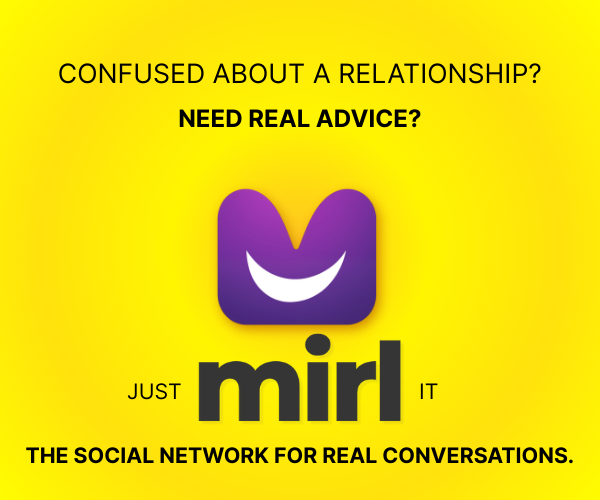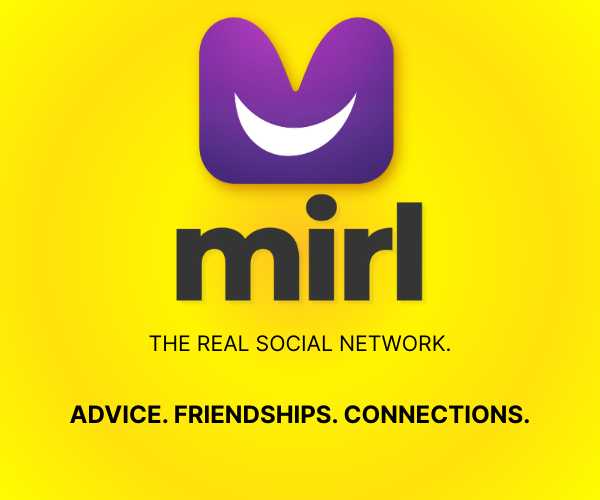How to Help Someone with Trust Issues Open Up & Overcome their Fear

It can be heartbreaking when you don’t know how to help someone with trust issues. If you use these tips, you will help them be one step closer to resolving them.
Trust issues come in all shapes and sizes. Some appear as jealousy. Others make someone appear cold or distant. But all trust issues can be worked on and helped. You just have to know how to help someone with trust issues.
Psychology of trust issues
What is trust? It is placing confidence in someone or something other than yourself. Trust can be beautiful, or it can be scary. It can help us feel deep love and form strong friendships.
Most relationships are built on trust. If we don’t have trust, then we have fear. So, you can understand how people with trust issues struggle in relationships and overall in leading a happy life.
A lack of trust can manifest in someone’s whole life – from romantic relationships to their career. And since a lot of our lives are interconnected, mistrust in one area of our life will affect others as well. [Read: How to trust again and give someone your heart when you’re not scared]
A person who has trust issues has negative beliefs about trust. They usually have a lot of thoughts that aren’t helpful to them, such as:
I can’t ever let anyone in.
If I open up to people, they’ll use it against me.
Everyone is dishonest and out to get me.
When a person thinks these kinds of thoughts, they put up walls as a defense mechanism to protect themselves. They think these invisible barriers will protect them from the pain of getting hurt again. It’s their way of avoiding any bad feelings like rejection or guilt.
When someone has this belief system, it can really burden them emotionally and physically. This also creates a lot of anxiety and stress that they feel every day. These beliefs act as a prison for them, and they don’t know how to get out. But they can with your help. [Read: How to build trust in a relationship and learn to be loving and loyal]
Where do trust issues come from?
Trust is a funny thing. It can take someone years to develop trust, but it can also be destroyed instantly. Someone who has trust issues has most likely had significant negative experiences in their past with untrustworthy people.
For example, if someone grew up with abusive parents, it’s not surprising that they might not trust anyone. If your own parents aren’t trustworthy, then who else can you trust? At least that is their thought process.
But trust issues don’t have to originate in childhood. They can be created later in life by rejection from their peers or a traumatic experience during adulthood. For example, if they were cheated on by their partner *or partners*, they might not think that anyone is capable of being faithful to them. [Read: How to date someone with trust issues and win their trust and love]
The bottom line is that when a person’s trust is repeatedly violated, their belief system can be profoundly affected. This, in turn, causes problems with placing trust in pretty much anyone.
Where do you begin?
The first step to helping someone with trust issues is patience. There is not one thing you can say or do to make this person open up and trust you. They likely have trust issues from someone in the past that lied to them.
Although you are not the reason for their trust issues, you must earn their trust through actions and understanding. Being patient with someone and letting them come to trust you in their own time is the best thing you can do. This helps them realize that they are worth the wait.
How to help someone with trust issues without taking it personally
A reason a lot of people don’t have the patience for someone with trust issues is that they take it personally. They think, ‘I haven’t done anything wrong for them not to trust me, but they’re punishing me for it.’ [Read: How to get over trust issues in your relationship and move forward]
That is not true, though. When someone has trust issues, it is because they trusted someone before and were fooled.
You may feel as if you are being punished, but in fact, they are punishing themselves because of the past. They question everything, and their pain and fear are heavier than your frustration could ever imagine.
Their past experience led to their fear of trusting someone new. But these people often have some of the biggest hearts, and waiting patiently for them to open up and trust you is so worth it.
If you’re wondering how to help someone with trust issues, realize that the best way to help is to trust them. [Read: The hardships of being afraid of love]
Understanding how to help someone with trust issues
Trust issues come from fear of being hurt or betrayed again. If you do not have that fear, you’re lucky. And although it may seem unfair to trust this person in order for them to trust you, trust that they are trying their best and want to trust you.
If they have a moment of irrational jealousy or hesitation, let them know that it is okay and you understand. Getting upset or defensive only pushes them further away. Let them know you do not take it personally. You get where they are coming from and are willing to help however you can. [Read: Pistanthrophobia and understanding the fear of trusting someone]
1. Ask them what you can do
Although staying calm and patient helps anyone with trust issues, they are all driven by varying sources. Some people simply need time to trust, others need someone to earn their trust, and others need more than that. So ask them.
Say something like, “I know you have trust issues because of your past and I’m happy to wait for you to trust me, but is there anything I can do to help?”
This lets them know you are willing to work with them rather than blaming them. They may ask you to take things slow, be there for them when they need you, or simply remain patient. [Read: The signs of insecurity people can’t hide when they feel insecure]
2. Offer to talk about it
Often, in order to understand why this person has trust issues, you have to know the story. It may be difficult for them to express it. Although they are likely over the person that hurt them, the situation and act of betrayal can stay with them for a long time.
But if you know what this person went through, you may be able to better sympathize with their feelings. Just know that by saying, “I would never do that to you,” you will not put them at ease. When it comes to those with trust issues, words mean a lot less than actions.
3. Prove it rather than saying it
You may not understand why they still don’t trust you after you promised not to betray their trust, but those words will not go far for someone with trust issues. They want to take your words to heart and believe you, but they’ve been duped before.
Rather than repeating your promises, prove your loyalty. Try not to cancel plans. Show up when you say you will. Offer to make them more comfortable in certain situations and actually do it. It may seem like you are putting extra work in, but this person is worth it. [Read: 25 ways to say “I appreciate you” without using words]
4. Realize what they are doing in order to trust you
Your frustration can begin to get the best of you. You may think that you are doing so much to earn their trust but wonder what they are actually doing to build trust for you. Although it may not seem like it on the outside, they constantly battle with themselves.
Between wanting to trust you and being terrified of being hurt again, it is difficult *if not impossible* to forget such intense pain and betrayal. Not only are they hesitant to trust you, but they also lost trust in themselves. As you may be waiting, they aren’t sitting around but actually begging themselves to choose happiness over fear.
5. What if they can’t shake this fear?
No one is ever sure of a relationship. You never know what is going to happen. And that fear and hesitancy live in everyone, even those without trust issues. So those who have been hurt by trusting before have those fears turned into paranoia. It can be hard to let go and believe things will work out.
And for those that have been repeatedly hurt, they may not be ready. If you have done everything you can to help, but they can’t shake their trust issues, it may not be the right time. You can help them by saying you care and you do not want to leave, but it is clear they are not ready for a relationship.
Let them know you are still there for them, but they need to work on their trust issues outside of a relationship. Perhaps they could go to therapy. They need to self-reflect and learn to trust themselves before opening themselves to someone else. [Read: Letting go of someone you love without the bitterness]
6. Sometimes, that is all you can do
Help is a difficult thing when it comes to trust. All you can do sometimes is wait and be there. Other times, you have to let go in order for them to find their way back. It may seem counterintuitive to leave someone that doesn’t yet trust you, but letting them go to figure it out on their own may be what they need.
Trust issues are often internal, so there is little you can do from the outside. All you can hope for is they will be able to trust again and be truly happy one day, with or without you.
7. Be true to your word with them
This is a very important thing that you must do if you want to help someone with trust issues. The main reason that they don’t trust people is that people have betrayed their trust. They told them that they would do something, and they didn’t follow through. [Read: Unique traits that make someone trustworthy]
For example, if your parents said that they would protect you, yet they abused you, then their words and actions didn’t match. So, as the saying goes, “actions speak louder than words.” Therefore, you have to have your words and actions match each other if you want someone to trust you. If you don’t, they will never believe you.
8. Remind yourself the process takes time
Sure, you want to be able to snap your fingers or wave a magic wand and make someone suddenly abandon all of their trust issues. But it doesn’t work like that. It takes a long time for people to trust others – especially if they have been burned many times in the past.
So, you have to be patient. Do the best you can, be trustworthy yourself, and eventually, you will prove to them that you can be trusted. Hopefully, you can also help them trust other people as well. [Read: Be careful who you trust – 15 ways to recognize the backstabbers]
9. Learn more about their traumatic experiences
Maybe they have bottled up the source of their trust issues for so long that they have never talked about it. So, encourage them to open up to you about it. They might be helped by telling you how they learned to stop trusting other people.
They may have never shared their story with anyone else. Hearing where the source of their mistrust came from will also help you be more supportive. You can see the potential issues they have a lot more quickly. Then, you can talk them through it. It will also help you be more patient.
10. Encourage them to see a therapist
If it’s financially possible, encourage them to see a trained professional to help them with their trust issues. Sure, you can help – but only so much. Unless you have studied how to help people with trust issues, you’re really just an amateur. Talking to someone who knows what they’re doing will help them a lot.
[Read: The step-by-step guide to getting over trust issues in your relationship]
Trust issues are complicated, painful, and frustrating. But when you know how to help someone with trust issues, patiently being there for them is all you can do.

















